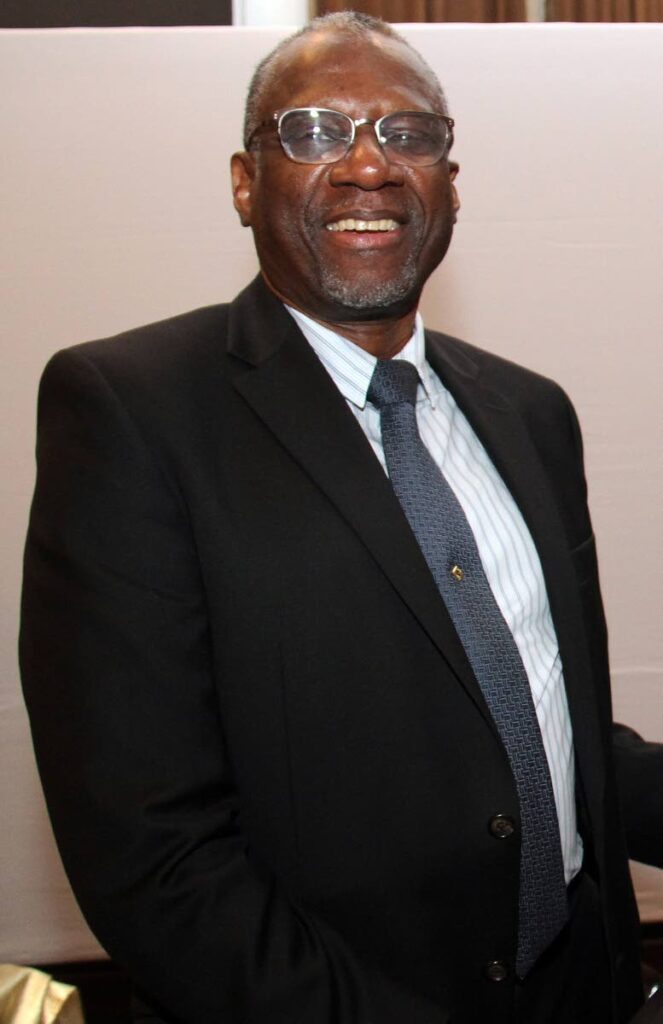Descending into the arena

TERRENCE FARRELL
REMARKABLY, the President of the UK Supreme Court, Lord Reed, intervened in the debate currently raging in Jamaica on that country’s accession to the Caribbean Court of Justice (CCJ) as its final appellate court.
The debate in Jamaica, which has been simmering for some time, was sparked by the initiative of the governing JLP to make Jamaica a republic, perhaps stung into action by the Windrush scandal and the visa requirement imposed on Jamaicans. For its part, the Opposition PNP has taken the position that it will not entertain constitutional reform to create a republic unless accession to the CCJ is simultaneously included.
On October 23, a strong editorial by the Gleaner, titled “Loitering at the Privy Council,” advocated for accession to the CCJ, citing the cost of taking appeals to London, the requirement to obtain a visa for Jamaicans to travel to the UK, the indignity of “loitering on colonial premises,” and the significantly greater access to justice that the CCJ will surely provide.
In response to this editorial, Lord Reed took the highly unusual step of descending into the arena of Jamaican politics by writing a letter on November 23 to the Gleaner. In that letter, Reed defended continued access to the Privy Council by Jamaicans, claiming that its judges considered it an honour to adjudicate on cases from Jamaica, that its cases were now live-streamed, lawyers could address the court remotely, and the UK Supreme Court was not burdened by matters appealed to the Privy Council, which is served by justices of the UK Supreme Court.
This last point contradicts the rather pointed remarks by Lord Phillips, the first president of the UK Supreme Court, who in September 2009 had deplored the disproportionate time he and fellow senior justices spent on appeals from “independent Commonwealth countries” and suggested that “in an ideal world” Commonwealth countries would stop using the Privy Council and set up their own final courts of appeal.
In fact, earlier in 2004, Lord Hoffmann, addressing the Law Association of Trinidad and Tobago, had argued that a local final appellate court would serve the region better because of its superior local knowledge and ability to reflect the practical needs and values of the society it serves.
Reed’s intervention provoked strong adverse reaction from certain lawyers in Jamaica and an editorial response on November 27 from the Gleaner. Attorney Gordon Robinson rubbished Reed’s claim on costs, pointing out that it’s not only the cost of travel and accommodation but also that English solicitors have to be retained, which is expensive.
In addition, if the lawyer for one party is appearing in person, the other party might be well advised to do the same. Arguing remotely is not the same as being present in the court, no matter how good the technology. Robinson traced the history of Jamaica’s continued use of the Privy Council and the genesis of JLP opposition to accession to a regional court in former prime minister Edward Seaga’s distrust of regional integration. For their part, the Gleaner’s editors argued that Reed had thrown his predecessor, Lord Phillips, under the proverbial bus.
The Gleaner sought to follow up with Reed on the earlier remarks by Phillips but did not get Reed who was ill, and instead got Lord Hodge, the Deputy President of the UK Supreme Court. Hodge averred that Phillips was speaking for himself and not the Privy Council, and reiterated the line embraced by Reed and Lord Neuberger before him, that the judges of the UK Supreme Court were honoured and privileged to serve those countries that wished to retain them.
The question before Jamaica, and TT, is not whether the UK judges are “honoured” or “privileged” or indeed happy to hear our cases. Respectfully, how they feel is irrelevant! What is relevant is the ease of access, the cost of access and, the point made even earlier by Lord Hoffmann, and repeated ad nauseam by our own CCJ judges, notably Michael de la Bastide, Charles Dennis Byron, Peter Jamadar and Adrian Saunders, the appropriateness of its jurisprudence.
The distrust of an apex regional court evident in the positions of the UNC in Trinidad and the JLP in Jamaica must be dispelled. Colonialism bred an “uncertainty of self” and lack of “cultural confidence,” including confidence in our institutions and our capacity to manage and reform them. It also bred distrust of each other within the region, so much so that, rather than embrace the CCJ, which can sit in Kingston, Castries, Georgetown, as well as Port of Spain, at least one Jamaican lawyer, accepting fully the need to dispense with the Privy Council, sought to make a case for Jamaica to have its own “supreme court.”
Jamaica will soon resolve the question of accession to a final appellate court. Like the retentionists in Trinidad, the retentionists in Jamaica argue for a referendum, knowing full well that referendums can produce perverse results because of ignorance and the politicisation of the question put to the population. Better, I think, the principled position of the PNP of having its constitutional monarchy and accession to the Privy Council resolved by Parliament, and doing so simultaneously since, after all, it is fundamentally the same issue, removing the last vestiges of colonialism. It is remarkable, is it not, that Barbados, “Little England,” has become a republic before Jamaica!
Lord Reed’s descent into the arena may well have catalysed the issue and brought matters to a head in Jamaica. I hope that Jamaicans, heirs of Nanny, the Morant Bay rebellion, Marcus Garvey, and Bob Marley, find the confidence to not only ditch the monarchy but also to stop loitering on the doorsteps of the Privy Council. I hope they overcome the distrust of regionalism in some quarters to fully embrace the CCJ, leaving TT as the only Caribbean republic loitering, shamefully, on the premises of the Privy Council.


Comments
"Descending into the arena"